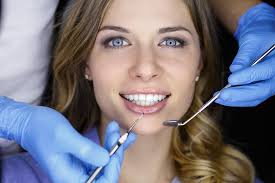Introduction
Cosmetic dentistry offers a range of treatments designed to enhance the appearance of your smile, from whitening teeth to correcting misalignments and reshaping teeth. While these procedures can significantly improve dental aesthetics and boost self-confidence, determining if cosmetic dentistry is suitable for you requires careful consideration of several factors. This article explores how to assess your candidacy for Cosmetic Dentistry, outlining key considerations and common procedures that may address your dental concerns.
Assessing Your Dental Concerns
The first step in determining if cosmetic dentistry is right for you involves identifying your specific dental concerns and desired outcomes. Cosmetic dental procedures can address a variety of issues, including:
- Stained or Discolored Teeth: If your teeth are yellowed or stained from coffee, tea, or smoking, teeth whitening treatments can effectively restore their natural brightness.
- Chipped or Cracked Teeth: Dental bonding or porcelain veneers can repair chips and cracks, restoring the appearance of your teeth.
- Misaligned Teeth: Orthodontic treatments like clear aligners or braces can straighten misaligned teeth, improving both aesthetics and function.
- Gaps Between Teeth: Dental bonding or porcelain veneers can close gaps between teeth, creating a more uniform smile.
By clearly identifying your specific concerns, you can better determine which cosmetic dental procedures may be suitable for addressing them.
Understanding Treatment Options
Cosmetic dentistry encompasses a variety of treatment options, each tailored to address different aesthetic concerns. Some common procedures include:
- Teeth Whitening: This non-invasive procedure effectively removes stains and discoloration from teeth, brightening your smile.
- Porcelain Veneers: These thin, custom-made shells are bonded to the front of teeth to improve their appearance by correcting chips, cracks, stains, or gaps.
- Dental Bonding: Using tooth-colored composite resin, dental bonding can repair chips, reshape teeth, and fill gaps.
- Orthodontic Treatments: Clear aligners (like Invisalign) or traditional braces can straighten misaligned teeth, improving both appearance and function.
Each procedure has its benefits and considerations, so discussing your options with a qualified cosmetic dentist is crucial to determine the best course of action for achieving your desired smile.
Considerations for Candidacy
Before undergoing cosmetic dentistry, several factors should be considered to assess your candidacy:
- Overall Oral Health: Good oral health is essential before undergoing any cosmetic dental procedure. Issues like gum disease or tooth decay should be addressed beforehand to ensure the success of cosmetic treatments.
- Realistic Expectations: Understanding the limitations and potential outcomes of cosmetic dentistry is important. While these procedures can enhance your smile, they may not always achieve perfection. A discussion with your dentist about expected results is vital.
- Commitment to Oral Care: Maintaining good oral hygiene and regular dental visits are essential for the longevity of cosmetic dental work. Committing to these practices will help preserve your enhanced smile over the long term.
Conclusion
Cosmetic dentistry offers transformative solutions for enhancing dental aesthetics and improving self-confidence. By assessing your specific dental concerns, understanding available treatment options, and considering key candidacy factors, you can determine if cosmetic dentistry is right for you. Consulting with a skilled cosmetic dentist will provide personalized guidance and recommendations tailored to achieve your ideal smile. Whether you seek to whiten teeth, correct imperfections, or straighten misalignments, cosmetic dentistry can help you achieve a smile that reflects your personality and enhances your natural beauty.





Comments